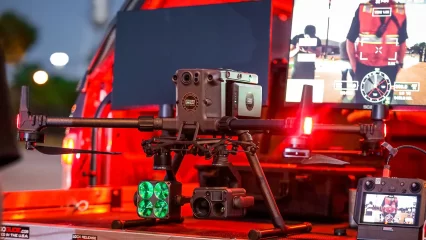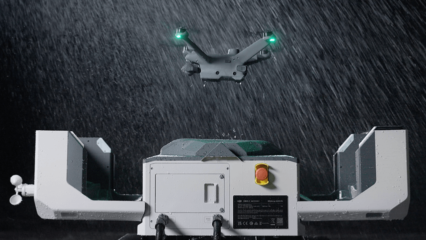Farmers, govts warming up to agricultural drones, says DJI

In 2015, Chinese drone maker DJI opened DJI Agriculture, a department solely dedicated to providing drone-based solutions for the agriculture industry.
Since then, the company has been making unmanned aerial systems and software, not only for crop spraying, but for crop health monitoring and collecting other data important for the success of precision agriculture all over the world.
And farmers the world over have been loving these solutions too, if the latest report from DJI is to be believed.
The company has just released findings of the DJI Agriculture Drone Insight Report 2022/23, which shows that DJI’s agriculture solutions have spread across six continents, which over 100 countries and regions covered.
“Since its inception just over ten years ago DJI Agriculture has grown over six continents, covering more than 100 countries and regions,” the report says.
“At the end of 2022, the global number of DJI agriculture drones exceeded 200,000 units, and the cumulative operating area exceeded 200million hectares, bringing the benefits of aerial technology to hundreds of millions of agricultural practitioners.
“Through flying training, a total of 150,000 agriculture drone pilots and 2,500 teachers have been trained to promote more young entrepreneurs to join the cause of science and technology agriculture and provide talent support for the development of intelligent agriculture.”
In just the past year alone, DJI made the following strides worldwide:
- Working with JKI in Germany, the DJI Agras T30 drone obtained safety approval from the aviation regulator, opening application possibilities in the country
- Opened the DJI Academy in Mexico to provide better pilot training
- Assisted in various plant protection activities in Brazil
- Europe opened its farming skies to the Agras T30, as many countries granted spraying certification for the drone
- Launched droplet size research for the Agras T40 in China
- Released the agriculture drone industry insight report for the first time; which proposed that agriculture should do more to take on ecological and environmental issues into consideration, aside from just focusing on farming efficiency
- Donated 15 agricultural drones to the China Rural development Foundation, which will be used to help prevent pests and diseases, contributing to sustainable development in the forest and grass industry in the country
- Saw one farmer in the USA replace their entire fleet of crop seven spraying helicopters with a fleet of seven DJI agricultural drones
- Released the Agras T40 in the US market, before going one ahead in China and launching the T50 in December 2022.
“DJI Agriculture strives to enhance the efficiency of farmland management through digital agricultural solutions based on intelligent agriculture drones in an environmental and ecological way,” said Yuan Zhang, Head of Global Sales at DJI Agriculture. “This report shows that governments around the world and farmers, are adopting the use of agricultural drones and smart farming methods to increase food production in a more scientific, sustainable and eco-friendly way. This approach can reduce the amount of agricultural chemicals used while ensuring food security and environmental balance.”
As agricultural drone technology is increasingly being embraced by farmers around the world, governments are starting to see the many benefits that this brings to the industry. In Zimbabwe, the government just commissioned a set of 9 crop spraying drones from DJI, which will first deal with the menace of quelea birds before being deployed towards the crops themselves; and there have been proposals to revise regulation across Europe, North America and Brazil to accommodate the integration of DJI’s agricultural drones.
In China, DJI’s T16, T20, T10 and T30 agricultural drones were all issued with airworthiness certification by the CAAC.
As for innovations in drone application; DJI says; “Drones have been used in a number of innovative ways from pest and disease control in the Maldives to integrating them with traditional grape farming techniques or even in smart farming, optimizing potato and rice yields.
“One large scale potato farmer in Washington State saw an 80 percent reduction in insect damage by conducting spot spraying on a 60-hectare field. In Japan a local rice producer was able to save on fertilizer and increase his yield, giving him an additional 5,425 USD per hectare. Some of the more novel use cases include pollination, shaking dead flowers from fruit trees, and spraying of antifreeze and sunscreen for fruit trees.”
The report adds that there are extensive discussions around the world on establishing best practices for agricultural drones, which include crew training, drone technology improvement, pharmaceutical use specifications, standard operating procedures, and safe operation guidelines.
DJI Agriculture not only manufactures drones, but also actively establishes contacts with a number of chemical companies, universities, and professional institutions to jointly explore best practices for drone application in the industry.






0 Comments